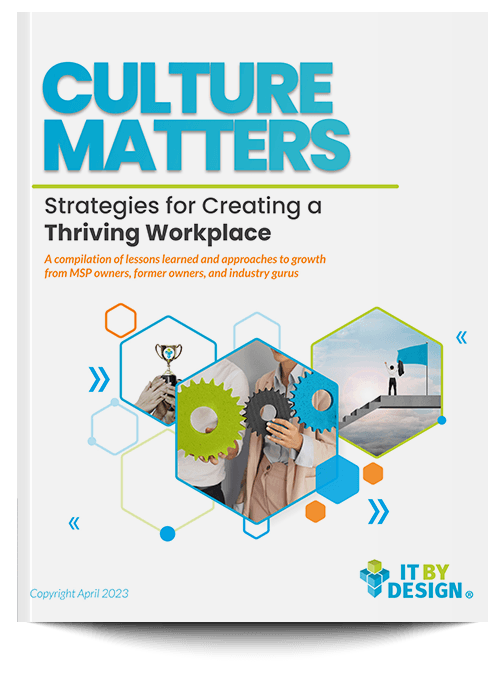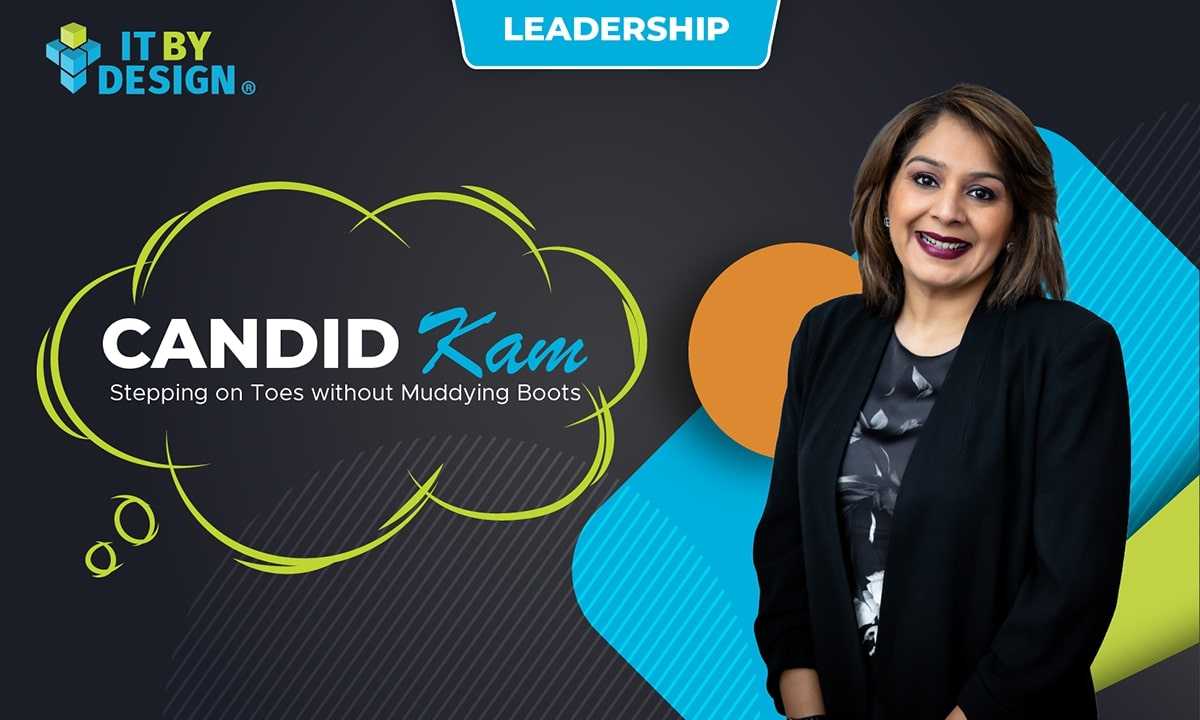I heard this wonderful saying a few weeks ago, during a conversation with one of our customers, Josh, and I think it is now my life’s mantra. Josh and I met at ChannelCon a few weeks ago and started talking about leadership styles. He is an avid John Maxwell follower as well, and also does sales coaching, along with running his own MSP. During our conversation, we started to discuss the value of ‘speaking straight’. It was during this part of the conversation that he shared these words of wisdom with me: ‘You should live life stepping on toes, without muddying boots.’
For those of you that know me, you know I don’t mince words. I speak my mind, while always still trying to be kind. A little bit of a back story, my Dad passed away when I was 16 years old, and my grandfather became the patriarch of our family, and he had my sister married off 6 months later (yes, arranged marriages were a thing way back then). I immediately went from being a happy go lucky middle child, to being the primary caretaker for my little brother (8 years old) and sister (9 years old), because my mom, who was 39 at the time, was grieving by the unexpected nature of our loss. I didn’t know it at the time, but she had depression, and was struggling to take care of us, so I picked up the slack. I didn’t even get to say goodbye to my Dad. One minute he was there, as I went off to work at my first job at A&W, and the next minute I got a call that he’d fallen and to come home quickly. So many words left unsaid. I decided, from that moment forward, that life is too short and that I was never going to leave anything unsaid.
Fast forward to today, and I have learned a lot since that day. Having heard Josh’s statement, I think it accurately sums up my way of being; ‘I often step on toes, while trying not to muddy boots.’ Living an honest and authentic life is important to me, which is why I speak the truth. What I have learned over the years, and believe me, I’m still a work in progress, is how to speak the truth without being mean, hurtful, or slinging mud at others. I feel that many of us try to walk that fine line, but sometimes will leave things unsaid for fear that it will hurt others, or to the other extreme we scorch the earth.
I have some friends who are ‘truth speakers’, as I like to call them. They will speak the truth whether I’m going to like what they have to say, or not. I can’t begin to tell you how much I value these friends for their honesty. John Maxwell speaks the truth and says it’s the only way he knows how to speak. If you have heard John’s podcast, he will always speak a truth and say, “My name is John, and I’m your friend.” Mincing your words when giving feedback to someone or allowing them to think something is positive when you think otherwise for fear of hurting their feelings, is hurting them more than your words would have, if you’d been honest. Honesty provides clarity.
The key is how to not muddy those darn boots. That’s the challenge, you see. We don’t just get to speak our truth and unload a bunch of pent-up anger or resentment on people. NO, that’s not what ‘speaking straight’ or ‘speaking the truth’ is about. These words must be filled with “good intent” and have a positive purpose. For example, you might be assigned to a presentation with a co-worker who is not really picking up their fair share of the workload. Having an honest conversation about expectations at the beginning, and holding each other accountable along the way, ensures that you have a positive working relationship and have mutually contributed to the presentation. If, however, we avoid speaking the truth or having healthy conflict, then we allow the co-worker to not do their fair share, and we are burdened with doing all the work. The consequences of this scenario are that we likely won’t have a complete perspective identified in the presentation because ours was the only perspective we had, but more importantly, we will walk into the presentation having built resentment for the other individual. Even if we deliver a rockstar presentation, we will be upset that the other individual is getting credit for our hard work and effort, when they didn’t do any of the work – URGH. Now, had we stepped on some toes, without muddying boots, we probably would have had a better experience overall.
It’s a very fine line and has a lot to do with being willing to have healthy conflict. I’m a teddy bear at heart, but I also don’t like things to be unfair, or leave a situation feeling like clarity was missing. It’s probably one of the reasons why I am OCD level organized, I like to make sure things are taken care of. So when there is a situation where I think clarity is required, or honesty for that matter, I will speak the truth. For example, let’s say we attend a conference as exhibitors and it’s not successful. I’ll be clear with the organizer as to my ‘why’ in their feedback form. I want to “be for them” and provide honest feedback so they can make modifications or corrections for next year. Had I simply said, “had a great time,” and then just ignored their calls next year, it would actually be more detrimental for them. I may have not ‘hurt their feelings’ by sharing my true constructive feedback, but by not allowing them the opportunity to address these concerns and avoiding the conference all together, it hurts them far more.
People talk, and our industry talks a lot. Everyone eventually knows everything about everyone and has an opinion about all those people and every one of their actions. I appreciate people who are open and honest in sharing their truth with kindness and positive intent. Speaking the truth does not include malicious intent. Speaking the truth does not intend to harm another person. Speaking the truth is about providing clarity about our own thoughts, assessments, and actions.
Too many times we see people use the premise of telling the ‘truth’, as a way of saying things to intentionally hurt or demean others. For example, when I hear someone say, “Everyone is talking about….”, I’m immediately thinking that the speaker is being passive aggressive, and that they are probably the one who has the problem but isn’t willing to say, “I have a problem.”
Like I said, it’s a very fine line and trust me when I say I walk that tight rope every day. What I have learned is to:
- Always be specific with feedback
- Ensure that I have positive intent when I am communicating something difficult
- Be honest and kind in how I communicate
- Never use “truth” as a tool to unload my own resentment on someone else
- Be willing to hear the truth from others, as well
- Understand that everyone’s version or perspective of the “truth” may not be the same as yours
For all my Truth Speaking friends out there, I hope this helps you to:
- “Step on toes, without muddying boots,”
- Live a life well led as your most honest and authentic self, and
- Be true and honest in all of your relationships.
For more content like this, be sure to follow IT By Design on LinkedIn and YouTube, check out our on-demand learning platform, Build IT University, and be sure to register for Build IT LIVE, our 3-day education focused conference, September 9-11 in Orlando, FL!








